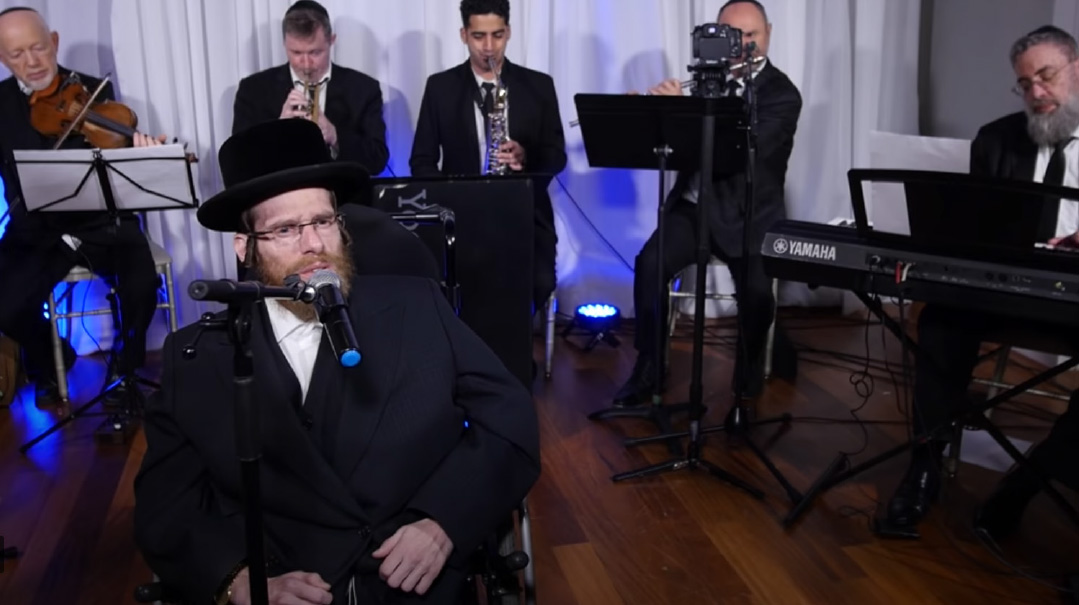Story Behind the Song: Sing Through Your Challenges
| May 28, 2024A veritable lesson in not letting your G-d-given gifts get bogged down by the limitations you can’t control

Story Behind the Song: Sing through Your Challenges
When people would first see wheelchair-bound SHIMMY RABINOWITZ make his way to the stage, they might have raised a few eyebrows. But today, the popular Tristate-area wedding singer has become a source of inspiration — a veritable lesson in not letting your G-d-given gifts get bogged down by the limitations you can’t control.
Shimmy, a Boyaner chassid who’s been in a wheelchair since toddlerhood, never let the volume on the music in his soul be lowered. He’s been playing keyboard since he was a kid, and as a bochur, would be invited to play at small events.
“It was complicated though,” he admits. “Because of my limitations, I couldn’t schlep my equipment or set anything up myself, so I was always asking my friends to help out. But at a certain point I knew I couldn’t continue like that, so I reassessed — and found a way to remake myself in the world of chassidic music.”
Shimmy was gifted with a special voice from childhood, and at some point, he decided that would be his focus. And so, the new singer on the market — who had just gotten married himself — was soon flooded with bookings. At first it might have been an amusement — why not hire this miskein if he can sing a little? — but audiences soon learned that they were the ones to gain. His independence, his ability to push forward despite the odds, together with a voice that touches hearts, has made him a favorite on the wedding and events circuit.
His popular single, “Odeh Hashem Bechol Levav,” was actually inspired by one of his major challenges. The song was written by his father, baal tefillah and composer Yehoshua Rabinowitz, during Covid, when Shimmy was hospitalized for some very complex surgery. Because of Covid regulations, Shimmy faced a weeks-long hospital stay alone with no family assistance, but he and his family were in for a shock: Just a few hours after the surgery, he was notified that due to its surprising success, he’d be released that very day.
When he returned home, his father told him, “I want to play something special for you. This morning, when you went into surgery and we were all so nervous, I took all those prayers and composed a niggun of thanks.”
Shimmy was overwhelmed by the intensity of the song, and knew he needed to publicize it —after all, don’t we all need to give thanks for all the miracles, seen and unseen, that we benefit from every single day?
Shimmy organized a production team and recorded the song, which he sang last year in front of thousands at the wedding of the Boyaner Rebbe’s youngest son, held in D-City outside Jerusalem. He was happy he could present the Rebbe with this wedding gift — after all, the Rebbe has accompanied him through all his medical challenges, personally calling him before and after every procedure.
Shimmy makes a point of passing that chizuk forward, staying in contact and encouraging other families with children who suffer from similar disabilities. “They see me, married, successful, doing my best to be happy despite my limitations,” he says. “I’m not mitigating my challenges, but for me, despair was never an option, and I think that helps them realized that they’re in the beginning of a journey whose end is unpredictable — and not necessarily catastrophic or hopeless.”
(Originally featured in Mishpacha, Issue 1013)
Oops! We could not locate your form.






